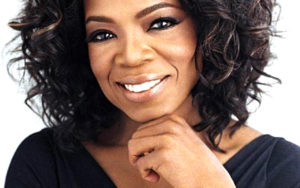I have nothing against Oprah Winfrey as a person, as a media celebrity/mogul, as a highly successful businesswoman.
But this notion making the social media rounds about whether she might run for president of the United States of America in 2020 is driving me a bit nuts.
Oprah apparently said out loud recently that if Donald John Trump can be elected president, then damn near anybody can be elected.
I happen to agree with that assessment.
However, the presidency should not become a playground for the rich and powerful. Oprah has as much public service exposure as Trump. That would be, um, none!
I’m a bit old-fashioned in that regard. I kind of prefer heads of state and heads of government to at least have run for something, anything, that demonstrates a commitment to public service.
Oprah is a celebrity. She’s a star, in fact. She’s made some fine films and has been an eloquent spokeswoman for the causes she deems worth espousing. She’s made Dr. Phil McGraw a star. She faced down some angry Texas Panhandle cattlemen who sued her for defamation because she said on the air that she didn’t think beef was safe to eat.
That’s all fine and dandy.
She ain’t presidential material.
I hope this little mini-tempest settles down quickly.

